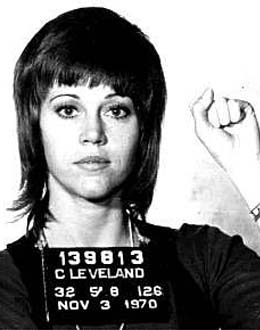 Sometimes a supporting turn by an actress is limited by the part or by the script handed her. It takes skill to transcend this and make the very most with what she is given. Such is the case with Julia Ormond as Caroline in The Curious Case of Benjamin Button, a strangely hollow and over ambitious project elevated by the turns of a number of actors carving out humanity from a script that seems more interested in clunky historical allusions than the characters involved.
Sometimes a supporting turn by an actress is limited by the part or by the script handed her. It takes skill to transcend this and make the very most with what she is given. Such is the case with Julia Ormond as Caroline in The Curious Case of Benjamin Button, a strangely hollow and over ambitious project elevated by the turns of a number of actors carving out humanity from a script that seems more interested in clunky historical allusions than the characters involved.Ormond spends the entirety of her time on screen sitting at the bedside of her dying mother, Daisy (played by an otherwise wonderful Cate Blanchett covered in prosthetic makeup), in New Orleans as Hurricane Katrina approaches (maybe the film's most grevious example of unnecessary historical allusions). Essentially a plot device as far as the script is involved, Caroline is reading the journal of Brad Pitt's Benjamin Button, providing the film with a window to the flashbacks that makeup the film's long-winded dramatic structure.
On the page, the part of Caroline must have seemed like an unplayable impossibility, a drab character with nothing of interest to say except when accepting leaps in logic in record time (oh . . . so he's aging backward) and giving David Fincher more padding for an overlong screentime. However, Ormond is able to make the audience identify with Caroline. She IS the audience, hearing the story of Benjamin Button for the first time as we watch it all unfold.
I'm not sure even Fincher understood the possibilities contained in this synchronization between character and viewer, but (I think) Ormond does. Caroline is a woman dealing with the inevitable loss of her mother, dealing with the approach of an uncertain future without Daisy and (though she doesn't know it yet) without the city and culture of New Orleans post-Katrina. She's angry at her mother for keeping these secrets for so long, and, in Ormond's eyes and line readings, we see her struggling to hold it all together, struggling to forgive her mother and say goodbye while processing these game changing revelations.
A one-time, failed Hollywood "it girl" in the Gretchen Mol mold and nominee for worst supporting actor in 2006 for The Lindsay Lohan Stripper Movie (an "honor" she earned by trying to add humanity to a character in a movie completely devoid of anything but failed camp value), Ormond's career has been a roller coaster of solid turns and strange casting decisions. But, in The Curious Case of Benjamin Button, Ormond proves that she has the skill to transcend a script that has almost no interest in her.
This entry is part of Stinky Lulu's 3rd Annual Supporting Actress Blogathon









5 comments:
Yay! I'm very glad that somebody noticed how good she is despite the film almost actively working against his. It takes a great amount of skill to develop a character with scenes that last less than two minutes on average. Awesome write-up.
ormond did a good job... yeah, and what was the deal with hurricane katrina? useless.
Totally agree. Setting it during Hurricane Katrina was very Forrest Gump of it . . . and that's not a good thing.
great call...
Ormand's performance of a potentially lackluster role really stood out to me as ewll.
great call!
oh by the way...i did a post the other day that actually praised the hurricane katrina inclusion -- i think it helped create a sense of reality in a fantasy story.
Post a Comment